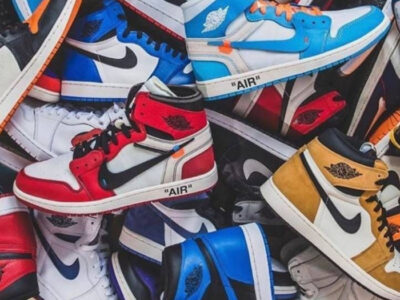The majority of people believe that taking from the rich and giving to the poor is the best way to address rising wealth inequality. Let’s pretend we followed this suggestion. We agree to split the riches of the world’s wealthy evenly among the world’s 7 billion inhabitants. Everyone receives approximately $32,500. Isn’t that the end of poverty?
Many individuals will deposit their funds in banks and invest in safe investment portfolios. Few people will withdraw the funds from the bank and begin developing products and services for these newly wealthy individuals. Few people will develop the abilities necessary to continue earning more money. The vast majority of people will be on the lookout for their ideal car, property, or latest item to purchase.
In five to ten years, we’ll most likely be back where we started, if not worse because there will be more poor people with inflated egos. Here’s the thing: if you don’t change your viewpoint, nothing else will.
Take, for example, Warren Buffett. He grew up in a middle-class family, but became addicted to the world of business and investing at an early age. He is now worth $72.3 billion. This money was not given to him by anyone. He acquired it because he has always acted in the manner of the wealthy while avoiding the conduct of the poor. Should he be forced to donate his money to the rest of us just because we haven’t achieved the same level of success as him?
As a result, we can conclude that your financial riches is an expression of your intellectual richness. Your financial insecurity, on the other hand, is a concrete embodiment of your intellectual insecurity.
Below are 10 things poor people do that the rich don’t do.
- Poor people spend money they haven’t earned.
Isn’t it amusing how they budget ahead of time? They spend money before receiving it. It is critical that you trim your coat to fit your clothes, but this is not the case for the impoverished. Instead, they cut their coats according to their ignorance, which is always the case. They spend what they haven’t earned because they don’t have any savings reserves and borrow for silly reasons. Consider credit cards, borrowing, putting a large budget on a little income, zero preference scales, and so on.
- The poor expect the government to take care of everything.
The poor expect the government to take care of everything. An impoverished person’s primary desire is to have children on their own. The government should then look after their children, sending them to school, feeding them, and so on; otherwise, the government is ineffective. The government bears responsibility for the impoverished. They refuse to take responsibility for anything. It’s no surprise they are what they are.
- People who are poor like to sleep in late and wake up late.
The truth is that sleep is beneficial. However, in order to get what you want, you must make a sacrifice. Maybe an hour or two of your sleep. You sleep six hours instead of eight and get out of bed at five o’clock instead of seven o’clock (depending on when you sleep). Use this time to grow as a person, to get in fitness, to read a book, to organize your day, to brainstorm, and to do things that will benefit you in the long run. Stop sleeping in, set an alarm, and train yourself not to snooze it. Sleep is necessary for your body, but get up early.
- Insufficient motivation
The word “motive” comes with motivation. And the word “motive” comes from the verb “to move.” When you have a cause to move, you are motivated; this is known as “movement for a purpose.” Poor people lack a strong motivation to make deliberate decisions and make the necessary compromises. If you want to be successful, you must first figure out why you want to be successful.
- Nonchalant Their Mentality About Their Health
Health is wealth and should be given top priority; however, most poor individuals do not prioritize their health. They’d rather take shortcuts than maintain a healthy lifestyle. Buying drugs from hawkers, eating haphazardly, delaying therapy, and so on are just a few instances. It ultimately costs them more.
- Bank on Wishes and Luck
With new gambling establishments opening up on a regular basis, the prevalence of gambling nowadays is rather worrying. This dramatic increase in gambling reveals a lot about society’s impoverished, who would rather gamble than invest. They believe in luck, yet wishful thinking has never brought anyone tremendous success.
- Procrastinators who have mastered the art of procrastination
Procrastination is something that everyone does. Some people, on the other hand, are master procrastinators. They are continuously on the lookout for the ideal moment and opportunity. They feel that the best moment to act is in the future, not today. They end up doing nothing because the future never arrives.
- Turn Down Possibilities
Problems and roadblocks are frequently disguised as opportunities. Problems and impediments must be avoided at all costs for poor individuals. By fleeing when confronted with a difficulty, people miss out on opportunities to learn and grow.
- Time management is ineffective.
“The only difference between a successful person and a poor person is how they use their time,” says Robert Kiyosaki, a well-known author, and financial lecturer. The impoverished are victims of the passage of time. When he looks back in his old age, he sees he wasted his time. Because the wealthy recognize the value of time management, they prioritize their time by paying others to undertake less important tasks.
- Priorities with flaws
We all have different priorities. People prioritize what they do with their time while deciding what to do with it. Poor individuals prioritize based on emotion and what is more convenient for them, but wealthy people prioritize based on what is more important to them.









